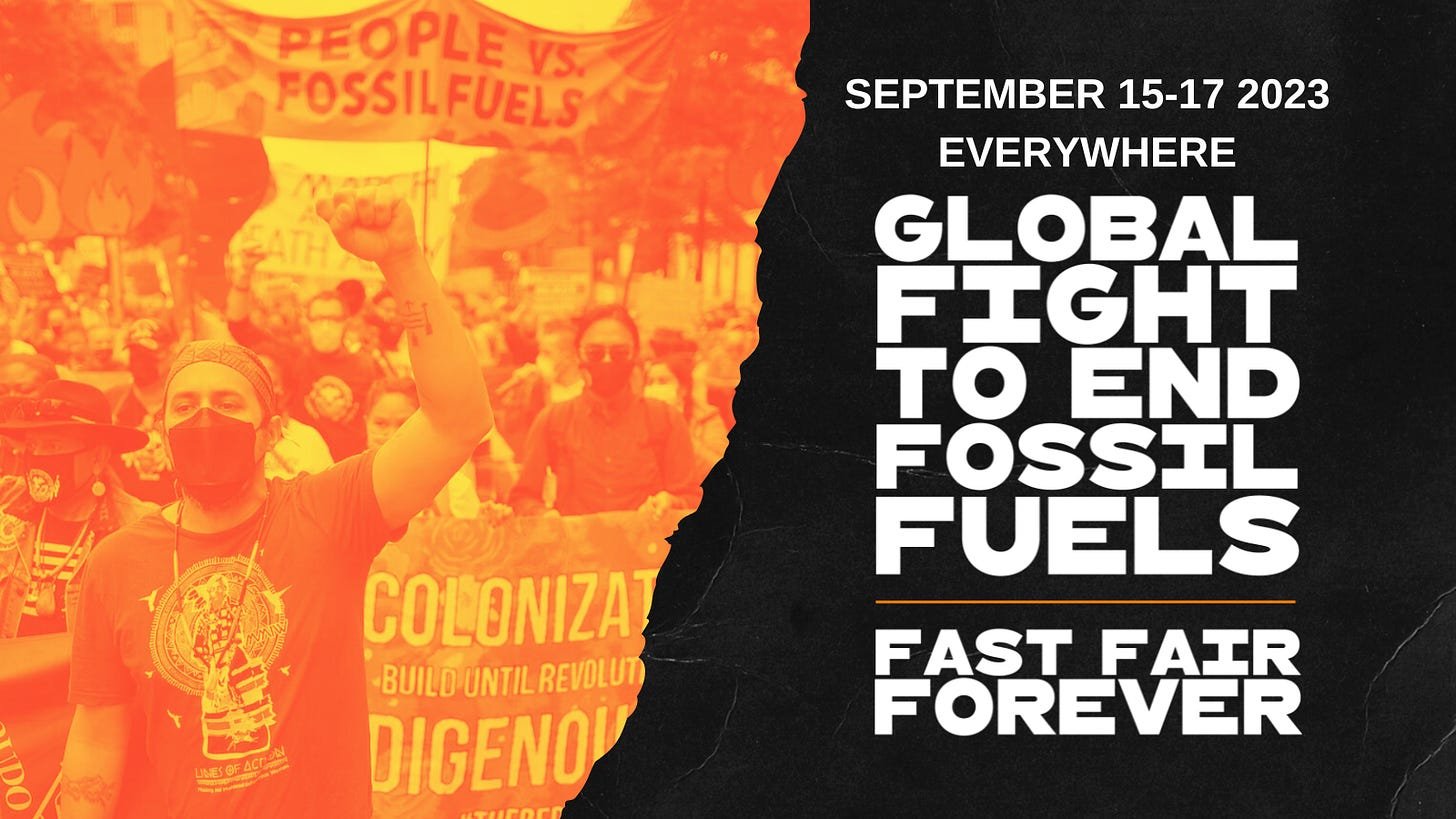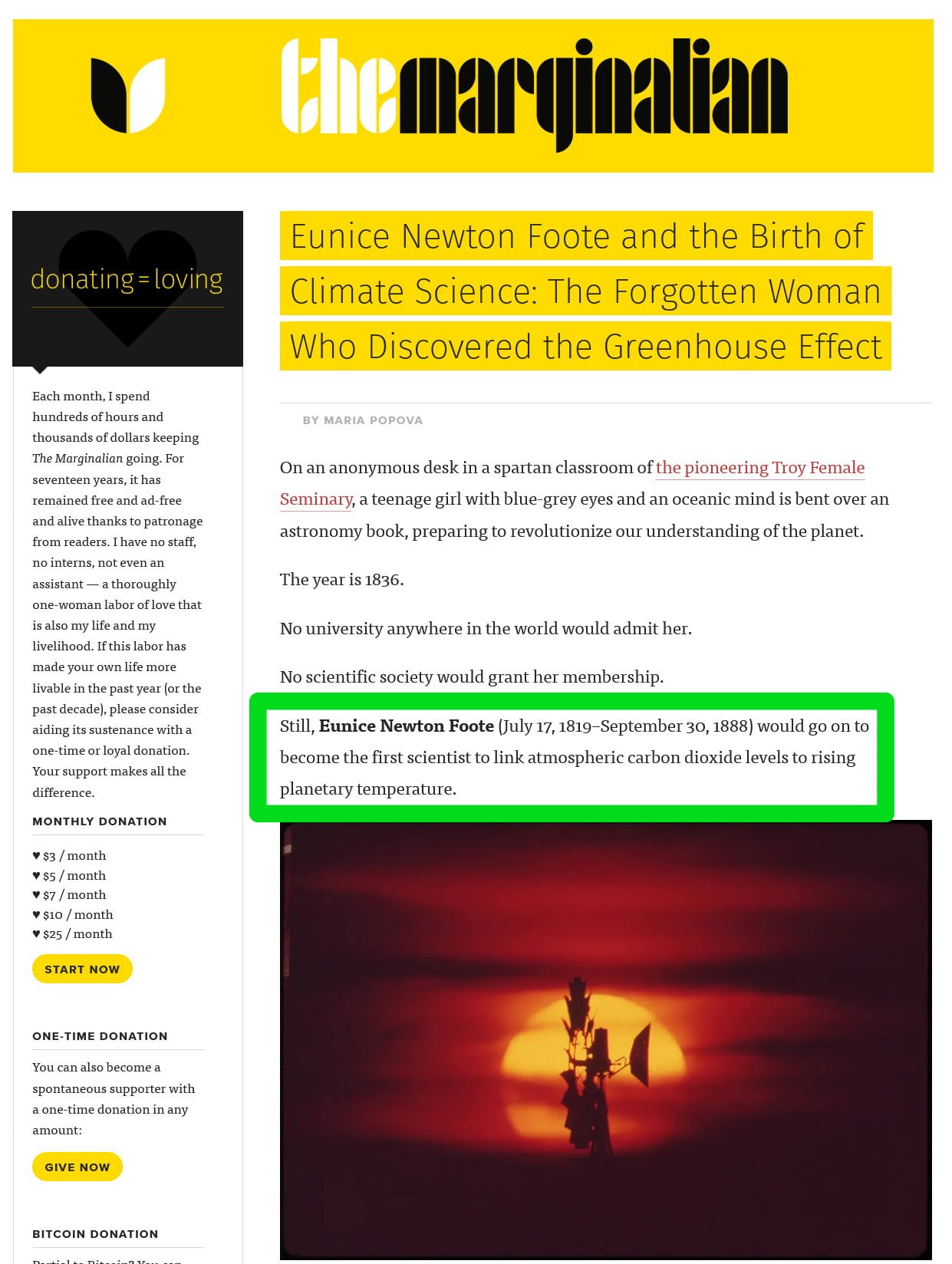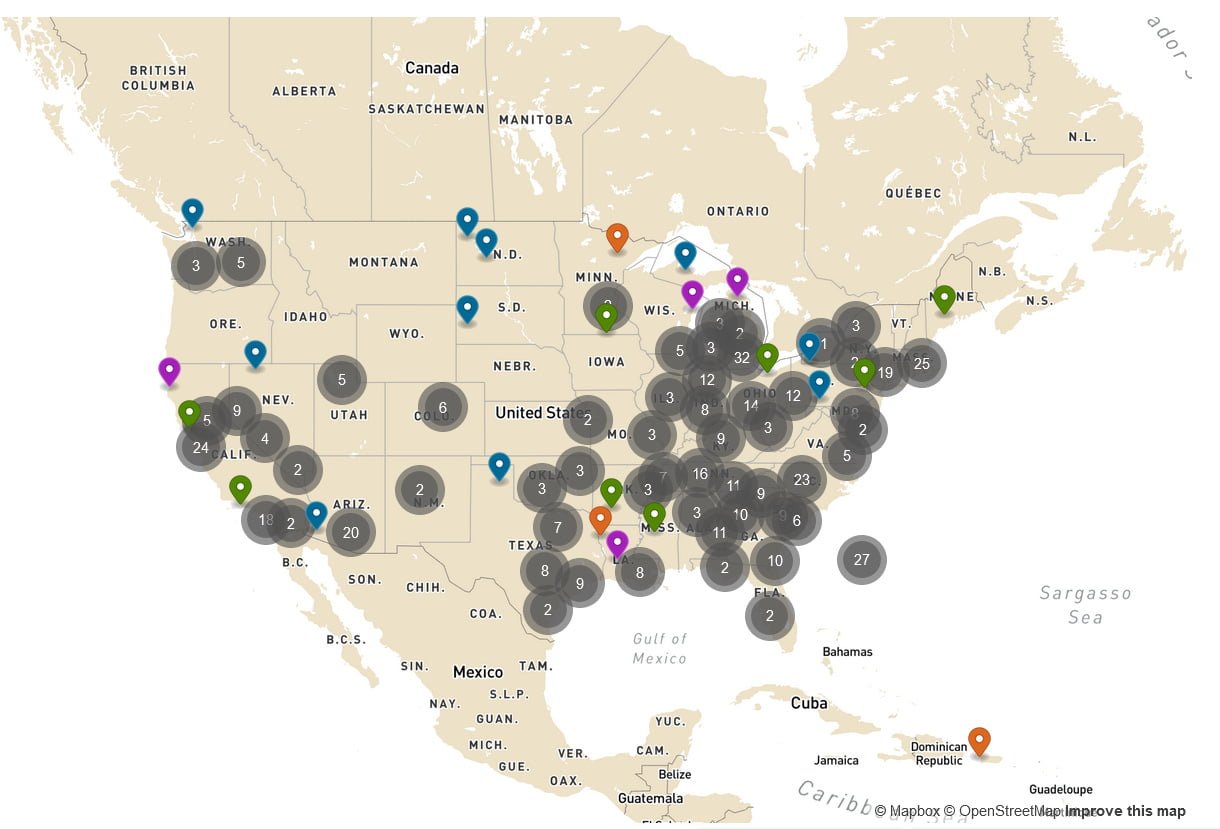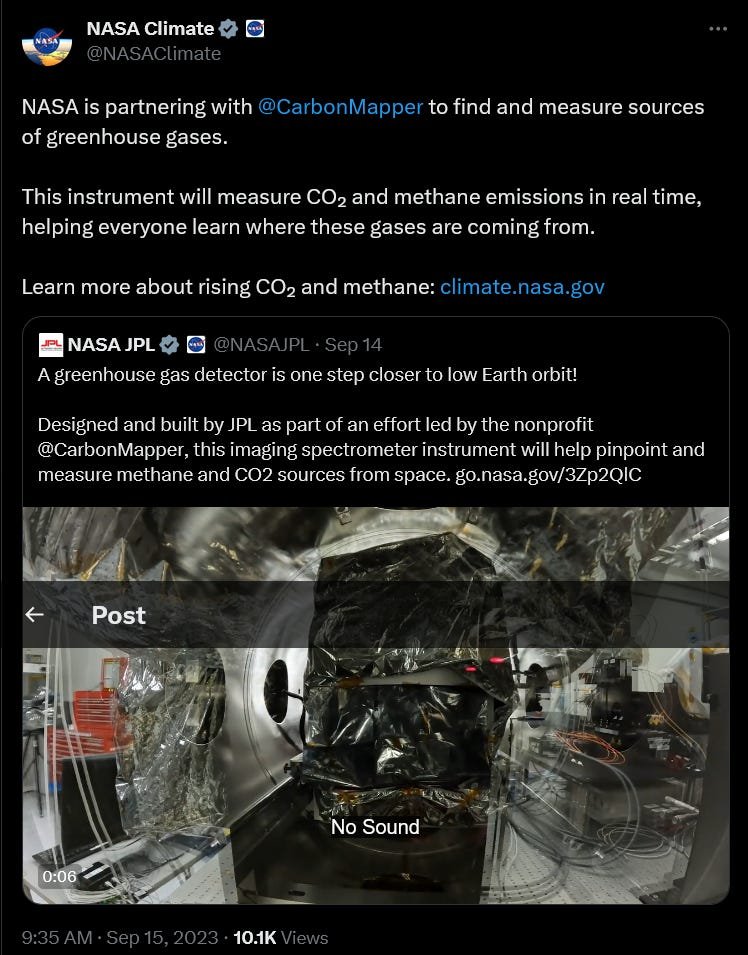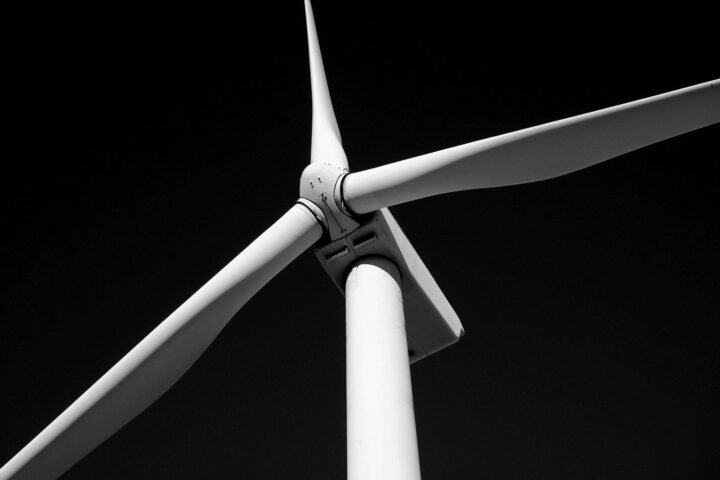Each week we share news and social media updates related to our “The 10 Ways to Save Our Planet” list.
1. Act Now
🌎 LAST CHANCE 🌍 Show up! Be heard! Be seen! 🌏
Leaders must listen to the people and end fossil fuels
(climatechangenews.com)
Yet we know justice won’t simply fall into our laps. Politicians often become leaders only once they’ve exhausted all other options and when the pressure becomes too big to ignore.
To follow this week’s climate actions on X/Twitter, click https://twitter.com/hashtag/EndFossilFuels
You Are the Earth. The Earth is You.
(plumvillage.org)
Brother Phap Linh recently spoke at Overheated, a climate event in London, on a panel titled “It’s Not Just You” about the rise of eco-anxiety. He spoke about how this anxious response to the current global context is a “sane response in an insane world,” and offered guidance on how to meet the most painful emotions within us in a way that helps us to grow.
💚 If you are interested in exploring these lessons more deeply, Brother Phap Linh is one of the teachers on the Plum Village online course, “Zen and the Art of Saving the Planet.” This course is a 7-week online learning journey to nurture insight, compassion, community, and mindful action in service of the Earth.
2. Build Political Will
Biden says global warming topping 1.5 degrees in the next 10 to 20 years is scarier than nuclear war
(cnbc.com)
☢️ President Biden has called global warming “even more frightening” than nuclear war, warning that there is “no way back” if the global temperature rises more than 1.5 degrees Celsius in the next 10 to 20 years. His comments came during a press conference in Vietnam, where he was attending a G20 summit.
What to do about climate’s front-page paradox?
(context.news)
Christiana Figueres describes the “front-page paradox” of climate change: while we are constantly bombarded with news of extreme weather events caused by climate change, governments around the world are not taking the necessary action to address the problem. In order to tackle climate change the world needs to:
Turbo-charge investments in all clean energy alternatives: wind, solar, geothermal, batteries, green hydrogen, and green mobility.
Enact a global moratorium on all new oil and gas exploration and exploitation, encouraging oil and gas companies to shift their business model.
Regenerate nature.
Figueres argues that these measures are necessary to achieve net zero emissions by 2050, the goal needed to avoid the worst impacts of climate change.
California Lawmakers Vote to Require Disclosure of Greenhouse Emissions
(nytimes.com)
The California Legislature passed a bill that would require companies to publicly disclose their greenhouse gas emissions. The law would not only require disclosure of operational emissions, those directly from a company, but also indirect emissions, such as employee travel and supply chain emissions. If signed, or simply not vetoed, by Governor Gavin Newson, the law would apply to every public and private company with annual revenue higher than $1 billion that operates in the state of California.
Also from the state of California:
California Sues Giant Oil Companies, Citing Decades of Deception
(nytimes.com)
The lawsuit was filed by the state’s attorney general against Exxon Mobil, Shell, BP, ConocoPhillips, and Chevron, and the American Petroleum Institute, an oil industry trade group. It claims that the oil companies have caused tens of billions of dollars of damage, and downplayed the link that damage has to fossil fuels.
3. Eliminate Fossil Fuels
Barclays seeks climate director after protests over fossil fuel finance
(theguardian.com)
Barclays has been targeted by climate activists for its role in funding fossil fuels. In 2023, the bank was disrupted by protesters at its annual general meeting. Barclays is now hiring a climate director, which some see as a sign that the bank is taking climate change more seriously. However, critics argue that the bank needs to do more to reduce its financing of fossil fuels.
4. Speed up renewable energy
EU lawmakers pass bill hiking renewable energy targets
(euractiv.com)
The EU Parliament has passed a law requiring member countries to increase their share of renewable energy to 42.5% by 2030. The current average is 22.1%. The law is legally binding, and also requires accelerated permitting times for renewable energy projects.
In a US first, new EV battery cells will be made with recycled metals
(electrek.co)
BASF and Nanotech Energy have partnered to produce new lithium-ion battery cells in the US using recycled metals. This is a first for the US and will help to reduce the CO2 impact of batteries and make them more sustainable.
5. Shift towards sustainable transportation
Germany Will Force 80% of Gas Stations to Install EV Charging, Too
(thedrive.com)
This Spanish city has been restricting cars for 24 years. Here’s what we can learn from it
(fastcompany.com)
Two stories from CleanTechnica:
6. Adopt planet-friendly agricultural practices
Citing sustainability, Starbucks wants to overhaul its iconic cup. Will customers go along?
(apnews.com)
♻️ Starbucks has been increasing the amount of recycled material in its disposable paper cups in recent years, but there are limits to what can be done with recycled paper material that holds hot liquids. Starbucks has announced plans to move away from disposable cups by 2030, and is currently exploring a variety of new options, including compostable and reusable cups. Starbucks’ plan to overhaul its disposable coffee cup is part of a broader effort to reduce its environmental impact. The company has set a goal of becoming carbon neutral by 2030.
Starbucks has provided few details, and have announced similar plans before, but the intention is commendable. -Ed.
7. Eat a more climate friendly diet
🍖🥛 What would happen if the world cut meat and milk consumption in half?
(grist.org)
A study published in the journal Nature Communications found that swapping 50% of the world’s beef, chicken, pork, and milk consumption with plant-based alternatives by mid-century could effectively halt the ecological destruction associated with farming, particularly in sub-Saharan Africa, China, and Southeast Asia. The study also found that such a dietary shift could lead to a 31% reduction in agricultural greenhouse gas emissions by 2050. That’s the equivalent of not burning 1.8 trillion pounds of coal each year between 2020 and 2050.
8. Create sustainable cities and buildings
Heat pumps twice as efficient as fossil fuel systems in cold weather, study finds
(theguardian.com)
Terra CO2 Is Building A Low Carbon Concrete Factory In Texas
(cleantechnica.com)
〰️
Solar-Reflective Pavement Cuts Air Temperature in LA Neighborhood
(theenergymix.com)
In a pilot project, the city of Pacoima partnered with roofing manufacturer GAF to apply a cooling pavement coating over 65,000 square meters of hard surfaces—streets, a playground, a basketball court, and two parking lots, all within a 10-block perimeter.
GAF’s first eight months of data show ambient air temperatures two meters above the ground that were on average 1.5°F (0.8°C) lower on sunny days and up to 3.5°F (1.9°C) cooler during an extreme heat day, compared to a neighboring community without cool pavement. The two-meter mark was critical because that’s roughly how tall people are. The pavement itself averaged 10°F (5.5°C) cooler on sunny days, with no negative impacts observed.
9. Protect and restore our environment
From Carbon Sink to Source: The Stark Changes in Arctic Lakes
(e360.yale.edu)
Greenland’s lakes have stored vast amounts of carbon in their sediment for millennia. However, climate change is causing these lakes to thaw earlier and have more algae blooms. This is releasing carbon dioxide into the atmosphere, which is contributing to climate change.
Scientists are concerned that this feedback loop could accelerate climate change. If the lakes continue to release more carbon dioxide, the Arctic will become warmer, which will cause more lakes to thaw, and so on.
Experts call for global moratorium on efforts to geoengineer climate
(theguardian.com)
Geoengineering is the deliberate large-scale intervention in the Earth’s climate system in an attempt to mitigate the effects of climate change. It is a controversial topic, and there is no global agreement on its use.
A panel of experts from the Climate Overshoot Commission has urged governments to place a moratorium on geoengineering efforts, as greenhouse gas emissions continue to rise and the climate crisis takes hold. They argue that geoengineering is too risky, and that its potential unintended consequences are unknown.
10. Ensure global warming stays below dangerous limits
As climate change warms rivers, they are running out of breath – and so could the plants and animals they harbor
(theconversation.com)
As climate change warms the air, rivers are also warming. Warmer water holds less oxygen, so rivers are losing dissolved oxygen. This process is called deoxygenation.
A new study has found that deoxygenation is happening in rivers around the world, including in the United States and Europe. The study found that rivers are warming by about 0.3 degrees Celsius per decade. Deoxygenation rates are reaching up to 1.5% loss per decade. This is faster than the deoxygenation rates occurring in oceans, but slower than those in lakes and coastal regions.
US sets new record for billion-dollar climate disasters in single year
(theguardian.com)
The National Oceanic and Atmospheric Administration (NOAA) has announced that the US has set a new record for the most billion-dollar climate disasters in a single year, with 23 events so far costing more than $57.6 billion. This surpasses the previous record of 22 events set in 2020.
The disasters include wildfires, floods, and ferocious winds, all of which experts say are being exacerbated by the climate crisis. One major disaster that is not yet included in the total cost is Tropical Storm Hilary, which brought life-threatening flooding and rainfall to the US southwest last month. The increase in expensive weather events is being caused by a rise in the number of natural disasters and more communities being built in risk-prone locations.
French ski resort closes permanently because there’s not enough snow
(cnn.com)
La Sambuy is a family-run ski resort in the French Alps that has been in operation for over 50 years. However, due to climate change, the ski season has become too short and unpredictable to make the resort viable. Last winter, the resort only had four weeks of skiable snow, and the town council has decided to dismantle the ski lifts and focus on summer tourism instead.
Earth ‘well outside safe operating space for humanity’, scientists find
(theguardian.com)
❌ The planetary boundaries concept was developed by a team of scientists in 2009 to define the safe limits within which humanity can operate without causing irreparable damage to the Earth’s life support systems. These boundaries are based on scientific understanding of the complex interactions between different Earth systems, such as the climate, the oceans, and the biosphere.
The new study, published in the journal Science Advances, is the first to assess all nine planetary boundaries together. It found that six of these boundaries have now been crossed: climate change, biodiversity loss, land use change, nitrogen and phosphorus pollution, freshwater use, and atmospheric aerosol loading.
10 Takeaways On What We Need To Do & Not Do To Save The Planet
(cleantechnica.com)
When it comes to saving our planet, we can’t rely on rapid technological advances like we have seen with computers. As for the technology we need to save planet, we can only count on technology which is already proven and is economical.
From Other Substacks
Links of the week
From Social Media
About Us
We are a weekly Substack newsletter focusing on:
Progress in the fight against climate change,
Opportunities for individuals to make a difference.
Please follow, subscribe & share
Follow our WeCanFixClimateChange list on Twitter.
Thanks for reading We Can Fix Climate Change! Subscribe for free to receive new posts and support our work.
Read the full post at Substack - WCFCC.
